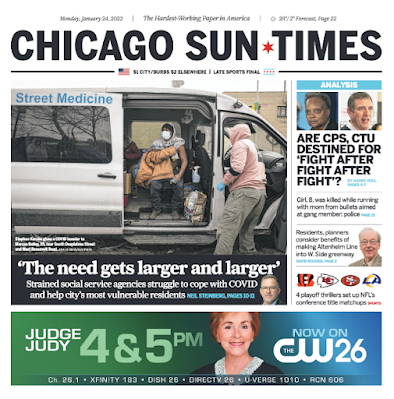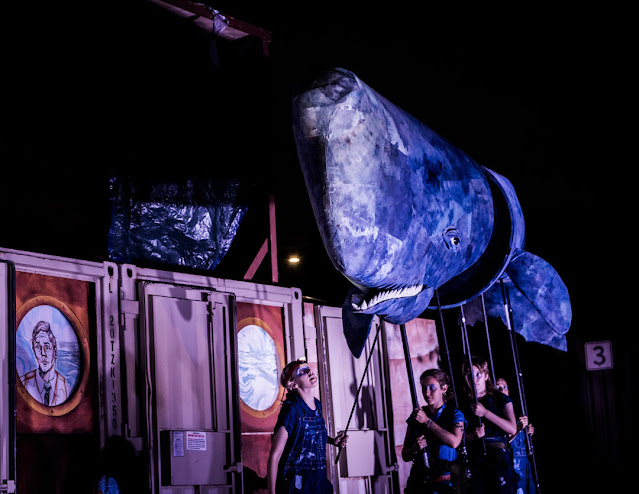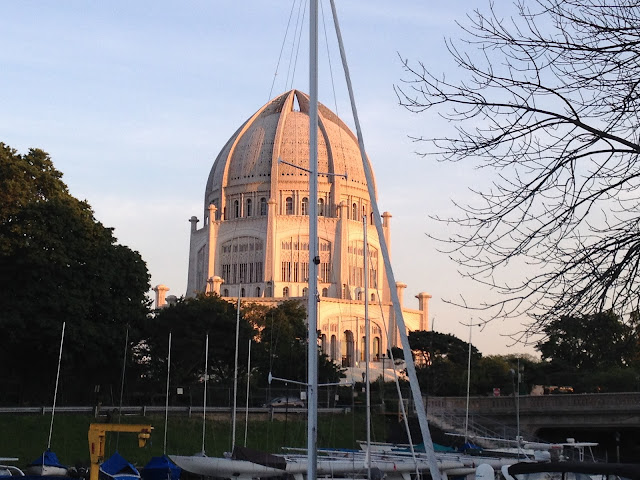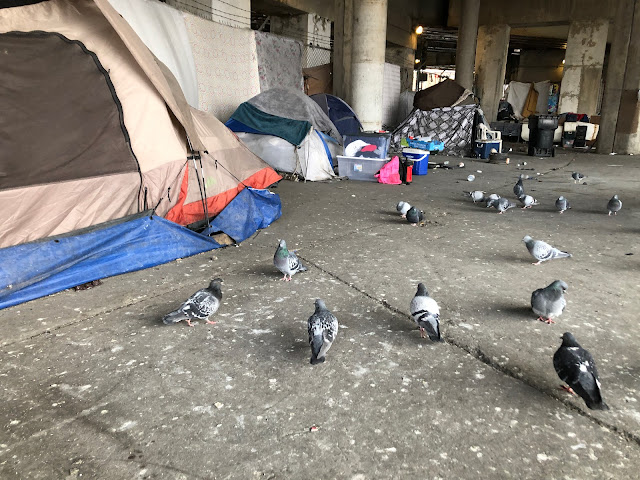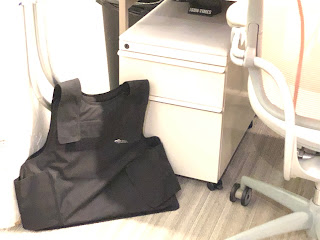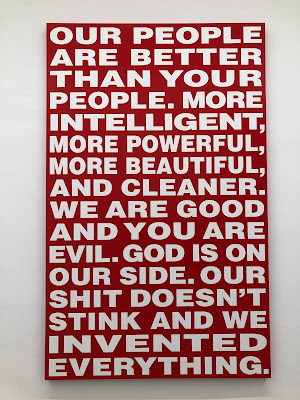 |
| Night Ministry case worker Sylvia Hibbard checks on homeless clients. |
Two weeks ago, after our Roseland story ran, photographer Ashlee Rezin called me. "It's cold outside," she said. "Let me make a call," I replied, and phoned the Night Ministry. "I've written about your medical bus, your street medicine team, your CTA outreach, your Crib shelter. What else have you got?" This story is the result.
Wednesday, 9:17 a.m., 21 degrees. The Night Ministry street medicine van is about to set out from its Ashland Avenue headquarters.
Once the two staffers inside figure out where they’re going on their rounds.
“We have a client who had an encounter with a bus — the bus won,” explains case manager Sylvia Hibbard, who’s in the driver’s seat. The homeless man with a cast on his foot is first stop on the list that senior nurse practitioner Stephan Koruba makes, taking calls, jotting notes on a clipboard.
“We’re missing an outreach worker who normally drives, answers the phone, plans the route and does needle exchange,” Koruba says. “We have a reduced presence due to COVID. We’re struggling a little bit.”
So those duties are now theirs, the missing worker one tiny twist of the vise that is slowly crushing frontline social service agencies at the beginning of the third year of the COVID-19 pandemic.
On one side, the pressure of ever-rising need.
“We’ve seen families coming to us for the very first time who have never had to ask for help before and now have to,” says Xavier Montenegro, divisional secretary for programs at the Salvation Army, metropolitan division. “There have been a significant increase in the number of youth reaching out to us under the age of 12, down to age 8, a 53% increase in 2020,” says Susan Frankel, CEO of the National Runaway Safeline. “It’s indirectly or directly COVID-related.”
“COVID threw us all a curveball,” says Kristina Lowenstein, executive director of the Honeycomb Project, which supports charitable organizations. “Nonprofits have seen ballooning demand. Food pantries seeing 300, 400% increases in folks looking for their services.”
On the other side, decimated, weary staffs. The Runaway Safeline pairs help with desperate teens and children anywhere in the country who call any time day or night, so they have a granular sense of both the rising nationwide demand and overtaxed available resources.
“Your pool of services and supporters continues to get smaller and smaller,” Frankel says, “while the need gets larger and larger.”
Agency staffers are exhausted from two years in full crisis mode, increasingly sick themselves, thanks to the highly transmissible Omicron variant. Some simply quit, leaving their organizations scrambling.
“The Catholic Charities staff is resilient, off the charts. I’m in awe of our people,” says Ami Novoryta, chief program officer for the archdiocese’s network serving hundreds of thousands of Chicagoans. “But they are tired and need help. We need staff. We need help.”
To continue reading, click here.
